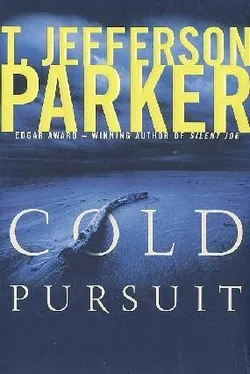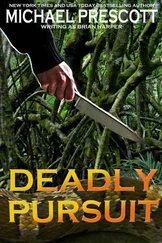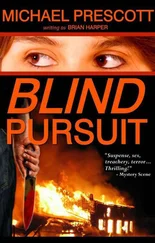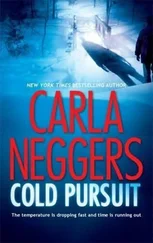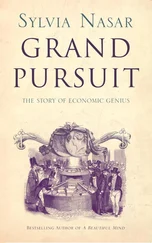"Clever, aren't we?" asked Delilah.
The macaws jawboned with Zisch for a few minutes, then the bald eagle glowered and flew, the ostrich strutted and the cassowary rolled a ball with its beak.
After the show, all the trainers came out for a bow and McMichael clapped loudly and took more pictures. A minute later he intercepted Zisch at the exit and asked him for an autograph to go with the pictures he took- for his son Johnny back in Denver. Johnny had been in the hospital lately for tests. Loved birds, mainly birds of prey, but liked parrots, too. Had a parakeet named Sarge.
"Could you write just a little something to my boy?"
"Sure, man."
Zisch wrote in McMichael's notebook with McMichael's pen.
"Hope he'll be okay."
"Thank you," said the detective. "This'll make him happy. Would you mind snapping a picture of me to go with the ones of you and the macaws?"
"No problem."
McMichael traded the camera for the notebook and pen, stood with his back to the theater and smiled. Zisch pushed the button but nothing happened.
"Gotta wind it forward," said the Denver tourist. "There you go. Hey, great show!"
***
Back at the car McMichael had just put the camera and pen into a paper bag when his phone rang.
"Detective, this is Dr. Eilerts at the zoo. Your feather came from an owl parrot."
"Do they have that species at the Wild Animal Park?"
"They've got four. We have four also. They're very rare and generally don't do well in captivity."
"What else can you tell me about them?"
"They're native to New Zealand 's South Island only, and were once thought to be extinct. They've got these extravagant facial feathers that make them appear owl-like. That's what you found. Owl parrots are a large bird."
"Then they're not popular as pets?"
"No- they're very hard to get. And like an owl, they're only active at night, which tends to keep pet owners awake at the wrong hours. Specialty stores or breeders would be a possible source. There are several of them in the city. I've got some numbers for you if you're interested."
He got out his notebook and a spare pen. "I appreciate this, Dr. Eilerts."
***
Hector, Harley and Erik met him in Fingerprints. McMichael explained that he'd washed both pen and camera with tissues and soap in the bathroom, then used the hand blower to dry them. Then he'd washed his hands with lots of soap and hot water, and tried to touch pen and camera as little as possible before handing them over to the bird trainer.
"The humidity is low today," said Harley. "Was he wearing gloves during the show?"
"No gloves."
"Too bad. That would have brought out the body oils in his hands. Okay- we'll bench laser them first, then the glue chamber."
Harley arranged the pen in the bench laser. "When the monochromatic light vibrates into phase, we'll get coherency. When we turn up the juice, the coherent light will amplify the latents- if there are any latents to amplify."
The bench laser showed a clear partial on the lower part of the pen, where you'd expect the index finger to rest. And a good thumb partial, on the opposite side.
"Grand," said Harley.
"Pure sex," said Erik. "Look at the curves on those ridges."
The upper part of the pen had very small partials.
"Check the top of the clicker, where the thumb would go," said Hector.
The laser light vibrated into phase, but revealed nothing.
Harley photographed the latents as they were amplified under the laser.
The camera contained one nearly full thumbprint on the upper left of the back side, where Zisch had braced the camera in order to advance the film. The thumbprints around the advance wheel were smeared.
"Check the bottom right corner," said McMichael. "I'm hoping for some palm to check against the slider."
Harley rearranged the camera in the laser unit and aimed the light onto the right-side bottom. McMichael watched the partial palm print reveal itself, beautifully bisected by what appeared to be two major lines.
"Line of heart meets line of health, just below the plain of Mars," said Erik. "My college girlfriend minored in palmistry and the other hard sciences, like astrology. That's definitely a right palm, upper right corner, exactly where you'd cradle that camera for a shot."
Harley photographed the prints, then shut down the bench laser.
"Luck of the Irish," said Erik.
"Luck nothing," said Hector. "He's just a good detective."
The cyanoacrylate fuming chamber made the prints visible to the naked eye, chemically hardening them into a nearly permanent record. Erik photographed them with a digital camera fitted with a strong magnifying lens, taking several shots of each print, complete with a ruler for measurement. He came back from the computer printer less than five minutes later with twenty-two large, clear fingerprint images.
Next, they spread out the fingerprint cards taken from Pete Braga's house, and from the inside of the latex gloves found down on the beach.
McMichael had always liked visual fingerprint analysis- trying to match the ridge patterns between two prints. He looked for the telltale bifurcations and endings and furrows that could match one print to another. It was difficult work to do well, very difficult to do well enough for a court of law, which is why the detectives left it to forensic specialists. McMichael reminded himself how easy it was to mistake a blood bridge for a ridge ending, for example, and how too much or too little ink would obscure a minutiae point and lead you to the wrong conclusion.
"No," said Harley after ten seconds. "The left thumb whorls are miles apart. Ditto the right index loops."
It took McMichael a full minute and a sinking heart to confirm what Harley had seen.
"Nice try," said Erik. "It really was."
"Hey," said Hector. "Not so fast. So this guy leaves one of his bird feathers, but he doesn't leave a fingerprint. He's the brains of the team. He lined up the mark- an old guy just like his neighbor. Made his partner use the club. Just because somebody else's prints were there doesn't mean he wasn't."
"Sure," said Harley, without conviction.
McMichael tried to picture a twosome. A robbery team had made some sense when it looked like the paintings and baseball gloves had been boosted that night. But if you ruled out robbery as motive, that left you with a basher and someone standing around… doing what? He wondered if Patricia might have missed some jewelry, besides the South African diamond earrings she'd remembered her mother wearing. And the hummingbird. Maybe Pete had cash in there that Patricia never knew about. But why would they close up the floor safe and move that heavy brass-nail sofa back over it? If they'd marched him up there to open it himself, why march him back down to his fish room, sit him down, then start hitting?
Pete was a collector, thought McMichael: baseball gloves, paintings, mounted trophy fish, signed books. And what else was he?
A businessman: sold cars, made investments. A politician: Port Commission, former mayor, city booster.
I'd look to the new airport if I were you.
All I can say is that Peter Braga was a tempestuous man.
McMichael realized he needed to spend a little more time with Pete Braga. Which meant a little more time with Patricia. Which had once been what he wanted more than anything in the world.
Back at his desk he found her number and made the call.
"I'll be aboard the Cabrillo Star ," she said. "Meet me at four."
Pete Braga's Cabrillo Star was berthed in Tuna Harbor, just a few blocks from downtown. Walking up the gangplank McMichael knew that the ship had seen some history. She had been built of wood as a tuna clipper back in the thirties, when they still caught the big fish with poles. She had seen action in World War II along with dozens of other tuna ships requisitioned by the navy to carry food in their freezers. She'd been converted to a seiner- a net boat- after the war. Then retired when the great super-seiners took over the industry and the Cabrillo Star became nothing more than a failed tourist venue and a quaint reminder of a time that was gone.
Читать дальше
